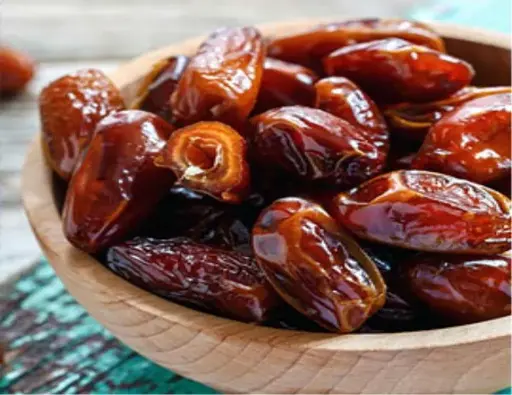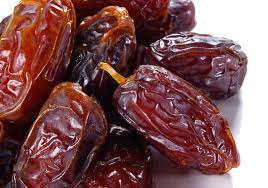
Kurma: The Sweet and Nutritious Delight That Captivates Taste Buds
When it comes to indulging in a delectable treat that offers both sweetness and nutritional benefits, look no further than kurma, also known as dates. Kurma has been cherished for centuries for its rich flavor and numerous health advantages. In this article, we will explore the fascinating world of kurma, its origins, its varieties, and the remarkable nutritional benefits it offers. Get ready to discover why kurma is not only a delicious delight but also a powerhouse of nutrients.
The Origins and Varieties of Kurma
Kurma is believed to have originated in the Arabian Peninsula thousands of years ago. Its popularity quickly spread across the globe, and today, it is cultivated in various regions, including the Middle East, North Africa, and Malaysia. The diverse climatic conditions in these regions result in a wide range of kurma varieties, each with its unique characteristics and flavors.
- Medjool: Known as the “King of Dates,” Medjool dates are large, soft, and lusciously sweet. With a caramel-like flavor and a hint of toffee, Medjool dates are often enjoyed as a standalone treat or used in desserts and baked goods.
- Deglet Noor: Deglet Noor dates are semi-dry with a slightly firm texture. They have a delicate, honey-like flavor, making them a versatile choice for various culinary applications. Deglet Noor dates are commonly used in both sweet and savory dishes.
- Zahidi: Zahidi dates are golden in color and have a sweet, buttery taste. They are often consumed when they are semi-dry, giving them a delightful chewy texture. Zahidi dates are a popular choice for snacking or as an ingredient in smoothies and salads.
- Sukari: Sukari dates are small, dark brown dates with a rich, molasses-like sweetness. They have a soft and chewy texture, making them a delightful addition to desserts, energy bars, and trail mixes.

The Nutritional Benefits of Kurma
Kurma is not only a delicious treat but also a nutrient-dense fruit that offers a range of health benefits. Here are some reasons why incorporating kurma into your diet can be a wise choice:
- Rich in Fiber: Kurma is an excellent source of dietary fiber, which aids in digestion, promotes feelings of fullness, and helps maintain a healthy weight. Consuming fiber-rich foods like kurma may also support heart health and regulate blood sugar levels.
- Packed with Antioxidants: Kurma is a powerhouse of antioxidants, including flavonoids and carotenoids. These compounds help protect the body against harmful free radicals, reduce inflammation, and support overall well-being.
- Abundance of Minerals: Kurma is a natural source of essential minerals such as potassium, magnesium, and copper. These minerals play a vital role in maintaining proper heart function, promoting bone health, and supporting a healthy immune system.
- Energy Boost: Kurma is an excellent source of natural sugars, including glucose, fructose, and sucrose. These sugars provide a quick and sustained energy boost, making kurma an ideal snack choice for an instant pick-me-up.
- Vitamins Galore: Kurma is packed with various vitamins, including vitamin A, vitamin B6, and vitamin K. These vitamins contribute to maintaining healthy vision, supporting brain function, and promoting blood clotting.
Incorporating Kurma into Your Diet
There are countless ways to enjoy the delightful flavor and nutritional benefits of kurma. Here are a few ideas to incorporate kurma into your daily routine:
- Snack Sensibly: Enjoy a handful of kurma as a satisfying snack between meals. Their natural sweetness will curb your cravings while providing a nutritious boost.
- Baking Bliss: Use chopped kurma as an ingredient in baked goods such as cookies, cakes, and bread. Their caramel-like flavor will add a delightful twist to your favorite recipes.
- Smoothie Delight: Blend kurma with your favorite fruits, leafy greens, and a liquid of your choice for a refreshing and nutrient-packed smoothie.
- Stuffed Goodness: Create a delightful appetizer by stuffing kurma with cheese, nuts, or nut butter for a unique combination of flavors and textures.
- Salad Sweetness: Add sliced kurma to your salads for a burst of natural sweetness. They pair well with both savory and tangy dressings.
To sum up:
Kurma, with its rich history, diverse varieties, and impressive nutritional benefits, is truly a remarkable fruit. Whether you enjoy it as a standalone treat, incorporate it into your favorite recipes, or use it to enhance your salads or smoothies, kurma is a delightful addition to a well-balanced diet. Indulge in the sweet and nutritious allure of kurma and savor the unique flavors that captivate taste buds while nourishing your body from within.